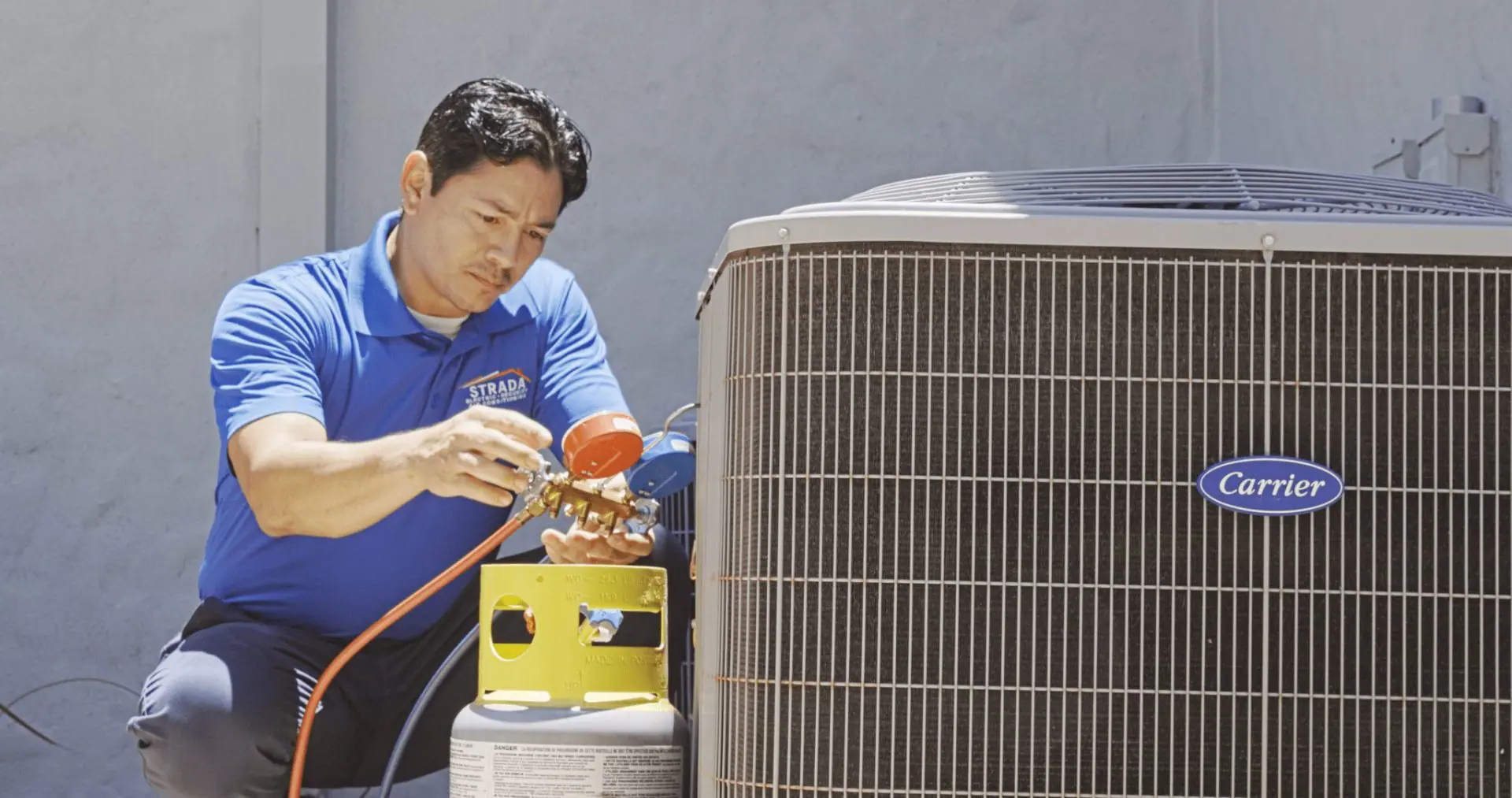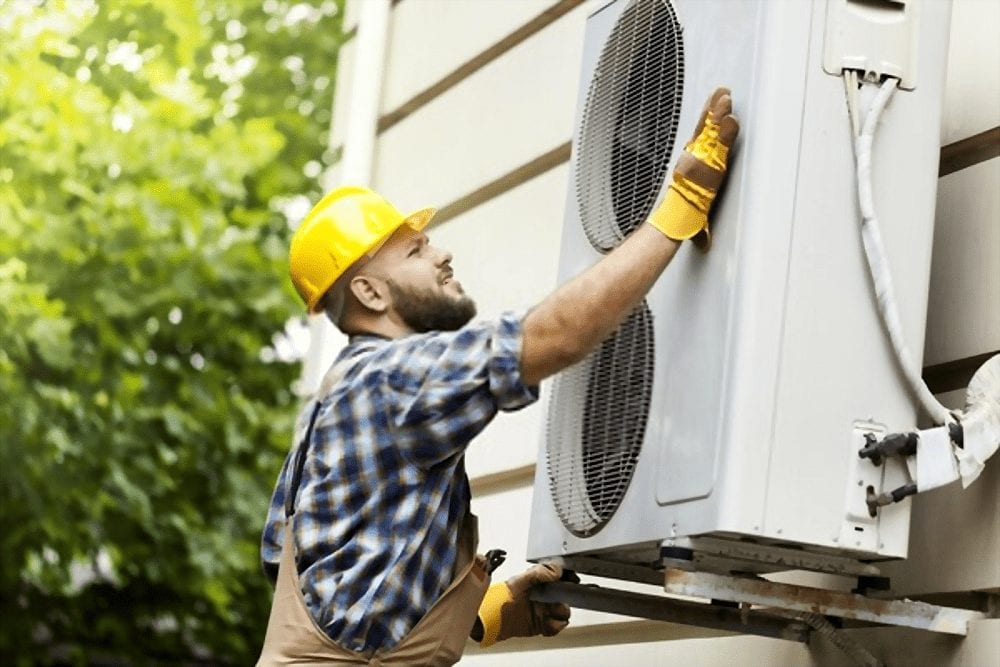What to Expect During a Professional furnace replacement
What to Expect During a Professional furnace replacement
Blog Article
Picking In Between a Heatpump and Heating System: Secret Factors To Consider for Your A/c Needs
When assessing home heating choices for a/c requires, the decision between a heatpump and a furnace can be complex. Each system uses distinct benefits customized to specific climates and energy performance goals. Comprehending these distinctions is vital for making an educated selection. Key elements such as installment expenses and environmental influence even more make complex the option procedure. Which choice genuinely straightens with one's comfort and sustainability choices? The complying with areas will certainly explore these factors to consider in information.
Understanding Heat Pumps: Just How They Function and Their Advantages
While several property owners consider numerous home heating choices, understanding how heatpump feature and their benefits can greatly affect their choice. Heatpump run by moving heat as opposed to generating it. In the winter months, they extract warmth from the outdoors air or ground and transfer it indoors, while in the summertime, they reverse this process, cooling down the home by eliminating warm outside. This twin capability makes them functional for year-round climate control.One of the primary benefits of heatpump is their power efficiency. They utilize significantly much less electrical power compared to conventional heating unit, potentially leading to lower utility bills (ductless mini splits). Furthermore, heat pumps have a smaller sized carbon impact, making them an eco-friendly selection. They also require less upkeep than conventional systems, contributing to long-term expense financial savings. Overall, understanding the technicians and benefits of heatpump can assist property owners make notified choices concerning their heating and cooling down requirements
Exploring Furnaces: Kinds, Operation, and Benefits
Heaters come in different kinds, including gas, electric, and oil versions, each with distinctive operational devices. Understanding these distinctions is vital, as they impact performance and home heating performance. Furthermore, heating systems offer numerous benefits, such as consistent warmth output and dependability in colder climates.
Kinds of Heaters
Heating unit can differ considerably in design and operation, with heating systems being a popular selection amongst house owners. There are several kinds of heaters, each utilizing different fuel sources and innovations. Gas furnaces are common, leveraging natural gas to generate heat efficiently. Electric furnaces, on the various other hand, make use of electric resistance to generate warmth, typically favored for their straightforward setup. Oil heaters, while less common, are effective in locations with restricted gas gain access to (heat pump installation ooltewah tn). In addition, condensing heating systems make the most of energy effectiveness by recording and recycling exhaust gases. Each type operates via a system of warm exchangers and ductwork to disperse warm air throughout a home. Comprehending the distinctions between these heater types is important for informed a/c decisions
Advantages of Furnaces
For home owners looking for dependable heat during cool months, the advantages of heating systems are significant. Heating systems provide consistent heating, ensuring even temperature levels throughout the home. They are specifically efficient in extreme cold, usually outmatching heatpump in cold conditions. Various types, including gas, electric, and oil heating systems, supply flexibility to fulfill varied needs and preferences.Furnaces additionally often tend to have lower initial installment expenses contrasted to warm pumps, making them a much more easily accessible alternative for many. Their robust layout adds to a much longer lifespan, with several devices lasting over 15 years with proper maintenance. Furthermore, contemporary heating systems are frequently equipped with sophisticated technology for improved performance, which can result in decreased energy costs. Generally, heaters stay a dependable choice for efficient home heating.

Power Efficiency: Contrasting Heat Pumps and Furnaces
When comparing power effectiveness in between heatpump and heaters, the Seasonal Energy Efficiency Ratio (SEER) plays a vital role in figuring out efficiency. Additionally, a functional cost evaluation exposes the long-lasting monetary implications of each system. Understanding these aspects can guide home owners in making notified decisions about their heating remedies.
Seasonal Energy Performance Proportion
Energy efficiency plays a vital role in the decision-making process in between heat pumps and heaters, specifically when thinking about the Seasonal Power Performance Proportion (SEER) This metric procedures the cooling effectiveness of warmth pumps over an entire air conditioning period, giving a standard way to evaluate performance. Greater SEER ratings indicate better energy effectiveness, equating to lower energy usage and reduced utility costs. In contrast, furnaces are normally evaluated using the Yearly Gas Usage Effectiveness (AFUE) ranking, which mirrors home heating efficiency. When contrasting these 2 systems, homeowners need to prioritize SEER rankings for warm pumps, as they straight effect general energy financial savings and ecological sustainability. A complete understanding of SEER can significantly influence the long-lasting contentment and cost-effectiveness of the selected heating and cooling remedy.
Operational Cost Evaluation
Recognizing the operational costs connected with heatpump and heaters is essential for property owners examining their options. Heatpump generally provide greater power effectiveness, transforming electric energy into warmth with marginal waste. This leads to lower regular monthly utility expenses, especially in modest climates. Conversely, traditional heating systems, specifically gas versions, may have lower in advance prices but can incur greater operational expenses with time official statement due to sustain prices and performance ratings.Moreover, heatpump can work as both heating and cooling down systems, potentially reducing the need for separate cooling and heating units. While initial financial investments for heatpump might be higher, their long-term cost savings in energy performance can make them an extra affordable choice for numerous homes. Careful analysis of local power prices is necessary to determine the very best option.
Installation Prices: What to Anticipate for each and every Heating System
Installment costs for home heating systems can vary considerably in between heatpump and furnaces, affecting homeowners' decisions. Heatpump typically have greater upfront setup prices, commonly ranging from $3,500 to $8,000, relying on the unit dimension and complexity of installment. This consists of the exterior device, interior handling system, and necessary ductwork modifications. Conversely, heaters have a tendency to have lower first prices, averaging in between $2,500 and $6,000, which can be appealing for budget-conscious property owners. Installment costs can raise if substantial ductwork is required.Moreover, the choice of fuel kind for heating systems-- natural gas, propane, or electric-- can additionally impact installation costs. While heatpump use energy efficiency, their first financial investment might discourage some purchasers. Ultimately, examining installation expenses along with long-term savings and effectiveness will certainly aid homeowners in making notified visit their website decisions concerning their furnace.
Environment Factors To Consider: Which System Executes Better in Your Area
Just how do environment conditions influence the effectiveness of heating systems? The performance of warmth pumps and heaters can vary substantially relying on the regional environment. In modest climates, heatpump succeed by effectively transferring heat from the outside air, making them an energy-saving alternative. However, their effectiveness lessens in exceptionally cold temperatures, where they may struggle to remove adequate heat. Alternatively, furnaces, particularly gas models, provide constant and trustworthy warmth despite exterior problems, making them preferable in chillier regions.In locations that experience milder winters, heat pumps can operate effectively year-round, giving both heating & cooling. On the other hand, regions with harsh winters months typically gain from the effectiveness of furnaces. Inevitably, understanding the neighborhood climate is crucial when making a decision in between a heat pump and a heating system, as it straight influences their functional efficiency and general performance.
Maintenance Needs: Long-Term Take Care Of Warm Pumps vs. Furnaces
While both warm pumps and heaters need routine upkeep to ensure peak performance, their specific demands and treatment regimens vary significantly. Furnaces generally require much less frequent focus, with yearly evaluations sufficing to look for gas leakages, tidy filters, and analyze total functionality. Their simpler layout typically permits uncomplicated repairs.In contrast, heatpump necessitate biannual upkeep due to their dual function in heating & cooling. This consists of cleansing coils, examining refrigerant levels, and making certain that both the outdoor and indoor systems work at their ideal. Furthermore, heatpump maintenance often includes even more detailed parts, making specialist maintenance essential.Neglecting upkeep can lead to lessened performance and boosted power costs for both systems. Ultimately, home owners must think about these long-term care requirements when selecting between a heat pump and a heater, as aggressive upkeep can prolong the life-span and efficiency of either system significantly.
Ecological Impact: Selecting a Sustainable Home Heating Alternative
The ecological influence of heating systems is a crucial assessment for house owners seeking lasting choices. Heatpump are normally more energy-efficient than typical heating systems, as they move warmth rather than generate it, considerably decreasing carbon discharges. By utilizing renewable resource sources, such as geothermal or air-source warm pumps, house owners can better reduce their ecological footprint.On the other hand, gas heaters send out greenhouse gases and add to air contamination, though they usually provide greater warmth result. Nonetheless, improvements in innovation have actually led to the advancement of high-efficiency heating systems that decrease emissions.Ultimately, choosing a heater involves weighing performance versus environmental effect. Homeowners are urged to review neighborhood power resources and motivations for renewable systems, guaranteeing an option that aligns with both individual convenience and ecological responsibility. The decision influences not just prompt comfort but likewise long-term sustainability and ecological wellness.
Regularly Asked Questions
The Length Of Time Do Heat Pumps and Furnaces Commonly Last?
The lifespan of heatpump generally ranges from 15 to two decades, while furnaces can last between 15 to three decades. Routine maintenance significantly influences their longevity and efficiency in offering home heating services.
Can I Make Use Of a Heatpump in Extremely Cold Climates?
Heatpump can operate in very chilly climates, yet their efficiency diminishes as temperatures decrease. In such problems, extra home heating resources may be needed to keep comfy interior read this article temperature levels and ensure peak efficiency.

What Is the Noise Degree of Warmth Pumps Versus Furnaces?
The noise levels of heatpump and heating systems vary substantially. Normally, warmth pumps operate more silently than traditional heaters, making them more suitable for those conscious sound, while heating systems may create louder operational noises throughout home heating cycles.
Are Warm Pumps Suitable for Both Heating & Cooling?
Heatpump are indeed ideal for both heating and air conditioning (ductless mini splits). They operate by transferring warmth, offering reliable temperature level control year-round, making them a versatile option for homeowners looking for an all-in-one cooling and heating solution
What Dimension Heating Unit Do I Need for My Home?
Establishing the suitable dimension heater for a home calls for assessing aspects such as square footage, insulation top quality, local climate, and the home's design. Consulting a specialist can ensure a precise evaluation and excellent convenience. Warmth pumps usually use higher energy effectiveness, transforming electrical power right into warmth with marginal waste. In modest climates, warm pumps stand out by efficiently moving warmth from the outdoors air, making them an energy-saving alternative. On the other hand, furnaces, particularly gas models, supply trustworthy and regular warmth no matter of outdoor conditions, making them more effective in colder regions.In areas that experience milder winter seasons, warm pumps can operate successfully year-round, giving both home heating and air conditioning. Warmth pumps are generally more energy-efficient than traditional heating systems, as they move warmth instead than generate it, substantially lowering carbon exhausts. By using sustainable power resources, such as geothermal or air-source warm pumps, house owners can additionally lessen their ecological footprint.On the various other hand, natural gas heaters release greenhouse gases and add to air contamination, though they frequently supply greater warmth result.
Report this page